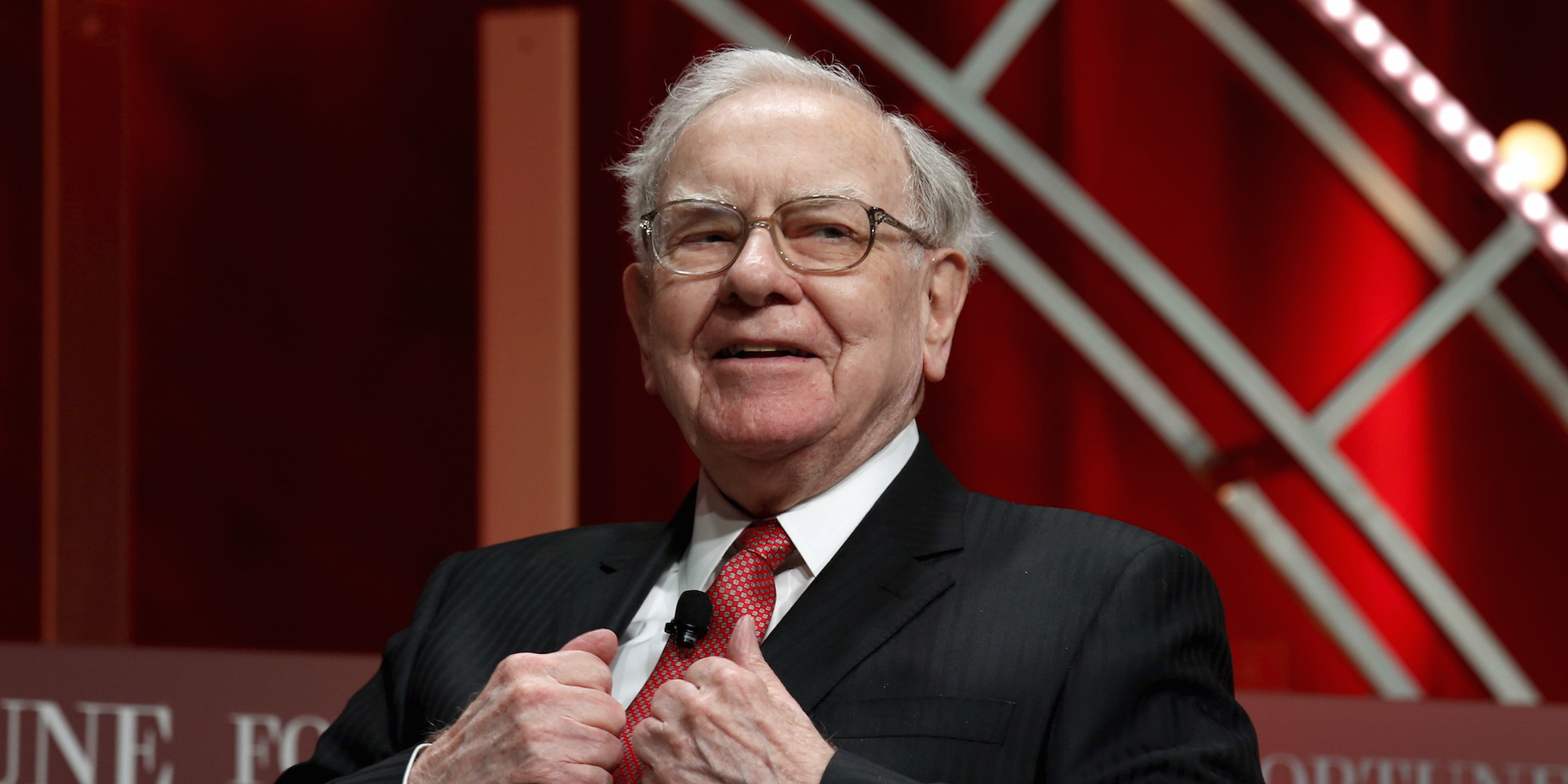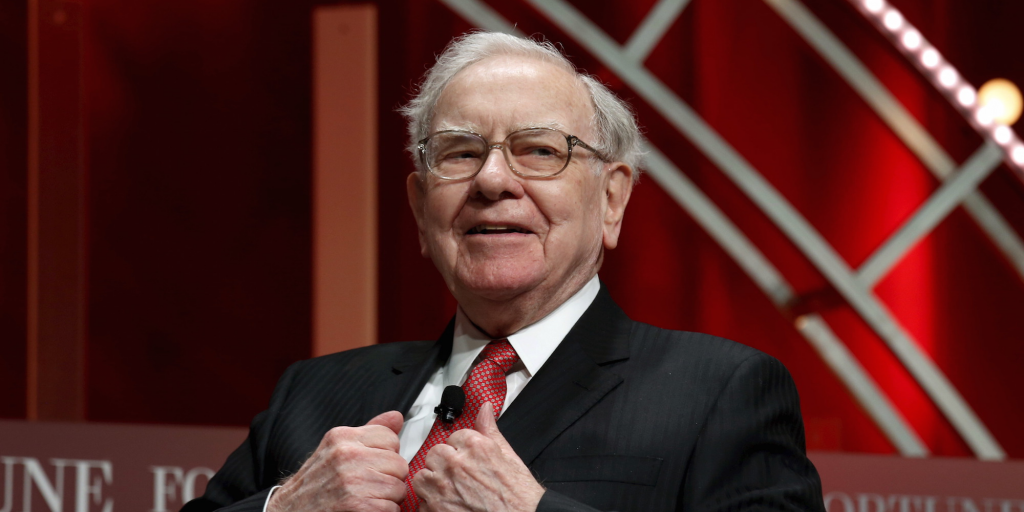
Kevin Lamarque/Reuters
• Warren Buffett's Berkshire Hathaway plowed $600 million into Gillette in 1989.
• The investor's company swapped its stake for over $4 billion of Procter & Gamble stock in 2005.
• Buffett used the P&G shares and some cash to buy Duracell in 2014.
• See more stories on Insider's business page.
Warren Buffett turned $600 million into more than $4 billion by betting on Gillette, then parlayed his stake in the razor company into acquiring Duracell. Here's a look at the investor's famous bet on one of his favorite businesses, and how he squeezed value out of it again and again.
Betting on blades
Buffett's Berkshire Hathaway conglomerate bought $600 million of Gillette's preferred stock in 1989. The shares paid a 8.75% dividend, had to be redeemed after 10 years, and could be converted into common shares at $50 a share. Buffett also joined the personal-care company's board.
"Gillette's business is very much the kind we like," he wrote in his letter to Berkshire shareholders that year. The company's strong brand, lion's share of the razor-and-blades market, focus on everyday products, and the simplicity of its business model undoubtedly appealed to him.
Gillette called Buffett's preferred stock in 1990, exchanging it for 12 million common shares instead, representing an 11% stake in the company. The investment quickly paid off; along with Coca-Cola, it accounted for nearly $1.5 billion of the $2.1 billion increase in Berkshire's net assets in 1991.
"Coca-Cola and Gillette are two of the best companies in the world, and we expect their earnings to grow at hefty rates in the years ahead," Buffett told investors that year.
Buffett loves the razor business
Buffett trumpeted Gillette's dominance in his 1993 letter, noting it commanded a 60% share of the global market. Berkshire's piece of the company effectively gave it a 7% share of the world's razor-and-blade revenues, he told investors a year later.
"The might of their brand names, the attributes of their products, and the strength of their distribution systems give them an enormous competitive advantage, setting up a protective moat around their economic castles," the investor said about Gillette and Coca-Cola.
In his 1995 letter, Buffett bemoaned being "far too clever" when he bought Gillette's preferred stock instead of common stock. Berkshire would have been $555 million better off if he had kept things simple, as his stake would be worth an extra $625 million, at the cost of only $70 million in dividends.
Buffett's praise of Gillette peaked when he branded it one of "The Inevitables" in his 1996 letter. "No sensible observer - not even these companies' most vigorous competitors, assuming they are assessing the matter honestly - questions that Coke and Gillette will dominate their fields worldwide for an investment lifetime," he said.
The billionaire also explained why he preferred reliable, established companies to technology startups or smaller industrial businesses. "I would rather be certain of a good result than hopeful of a great one," he said.
Buffett's Gillette stake mushroomed to $4.8 billion in 1997. He delved into why he liked the company at Berkshire's annual shareholder meeting that year. He argued that Gillette benefits as people move up the "comfort ladder" in shaving, and they're unlikely to go down a rung.
"If the difference between having great shaves and very so-so shaves, and lots of nicks and scratches and everything, is 10 or 12 bucks a year - that is not going to cause many people to change their habits," he said.
The Berkshire chief also highlighted that Gillette's Sensor razor for women had expanded the market.
"I would not have guessed that would work that well," Buffett said. "Before that, all the women just used the disposables, or their husband's or boyfriend's razor. But thank God they've gotten over that."
Buffett revisited the subject during the 1998 meeting. "It is a plus to have products such as Gillette has or Coke has, that have demonstrated the fact that they travel extraordinarily well around the world - people crave those products," he said.
"No one's going to find a way to do it better than those two companies in their respective fields," he continued. "And they sell an inexpensive product, so all of that's going for us."
Buffett added that as people's disposable incomes grow, they upgrade to Gillette products for a better and more enjoyable shaving experience.
The investor also emphasized the power of Gillette's brand moat. Everyone knows what the company does and how much money they could make by copying it, but nobody has succeeded in knocking it off and eroding its 71% share of global razor-and-blade sales, he said.
Swapping razors for batteries
Gillette's phenomenal success spurred Procter & Gamble to buy the company in 2005. Berkshire received 0.975 P&G shares for each of its Gillette shares - worth $4.3 billion at the end of 2004. It also purchased additional P&G stock to build a holding of 100 million shares, or a 3% stake in the packaged-goods group. The position cost it $940 million, and it was worth $5.8 billion at the end of 2005.
However, Buffett and his team trimmed their P&G stake in 2008 and 2009 as they wanted more cash to fund their investments in Goldman Sachs, General Electric, and other cash-hungry companies during the financial crisis.
The investor's next move was buying Duracell in 2014. Gillette had acquired the battery business in the late 1990s, meaning it was now under P&G's ownership.
Buffett exchanged his $4.7 billion of P&G stock and $1.8 billion in cash for Duracell. The deal meant he avoided the capital-gains tax he would have owed by selling his stock. It also secured Berkshire another operating business, which Buffett generally prefers to a portfolio holding.
Duracell was struggling when Berkshire bought it, and it has required substantial time and money to whip into shape. However, Buffett was on Gillette's board when it bought Duracell and has witnessed what it can do when run properly, he said at Berkshire's 2018 meeting.
"Duracell should be earning more money than it is now, and will be," he added. "It's well on its way there."
Buffett also has no regrets about swapping his P&G stock for the company. "I like the Duracell deal absolutely as well as when we made it," he said.
Berkshire still owns about 315,000 P&G shares - a stake worth $43 million at the last count. Buffett continues to own a piece of Gillette as a result, and probably looks back fondly on how he turned a bet on the razor maker into another multibillion-dollar business for his collection.

